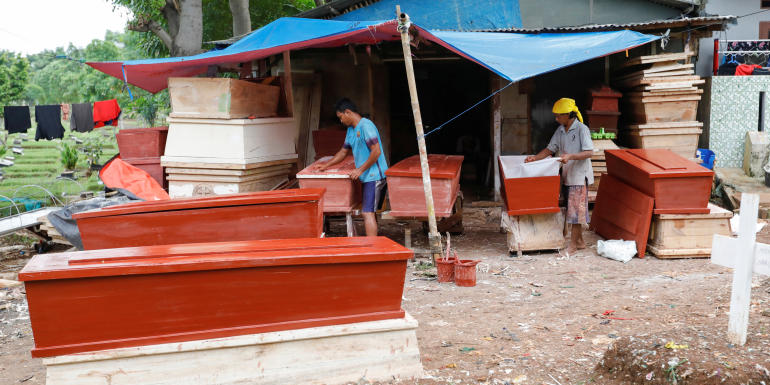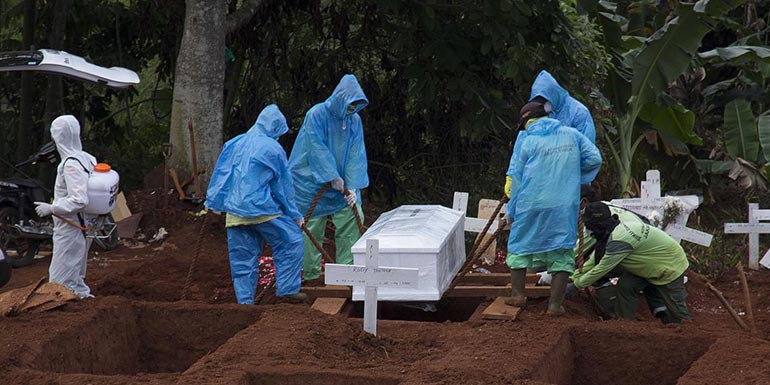Without modern equipment and extreme weather conditions death care workers are working around the clock to keep up with demand.
Jakarta, Indonesia’s capital, has been hit by a heavy outbreak of the coronavirus. At the Pondok Rangon Cemetery in East Jakarta, about 80 gravediggers normally work in four shifts, digging graves, cleaning graves, mowing the lawn and cleaning the sewer lines. However since the coronavirus came to town all gravediggers have been solely digging and are barely keeping up with the demand.
Local gravedigger Minar said in the 33 years he has worked at the Pondok Rangon Cemetery it has never been so busy . “I’m racing against time. Sometimes when a body arrives, the grave isn’t ready yet,” Minar said.
The gravediggers use PPE, but in the tropical climate with temperatures reaching up to 93 Fahrenheit (33 Celsius) and a high humidity with daily thunderstorms, the plastic poncho like PPE makes for extremely harsh work conditions.

Local Jakarta coffin makers scaling up
Indonesian coffin producer workshops are somewhat different then what you would see in a European or American coffin factory. At Pondok Kelapa Cemetery, in East Jakarta, local coffin maker Sahroni puts in 16-hour workdays and has increased production from five or seven coffins a day to 20 or 30 a day. His workshop is in the open air and doesn’t have the ‘heavy tools’ that many western coffin makers use.
Flattening the curve
Indonesia is the world’s fourth most populated country with over 276 million people dispersed over 17,000 Islands. With a fairly late start in social distancing, six weeks after the first patient was tested, Indonesia will still have a long way to go to flatten the curve. However, the first signs are there that social distancing is having positive effects. Predictive models of the Singapore University of Technology estimate that, by the 18th of June, that 99% of the COVID-19 cases will have ceased there.
Flattening the curve
Indonesia is the world’s fourth most populated country with over 276 million people dispersed over 17,000 Islands. With a fairly late start in social distancing, six weeks after the first patient was tested, Indonesia will still have a long way to go to flatten the curve. However, the first signs are there that social distancing is having positive effects. Predictive models of the Singapore University of Technology estimate that, by the 18th of June, that 99% of the COVID-19 cases will have ceased there.
